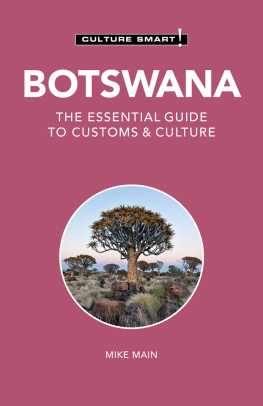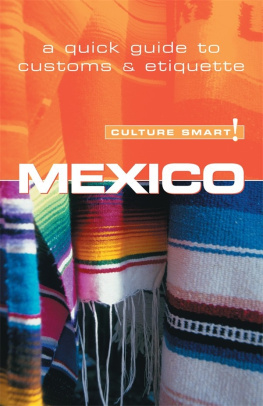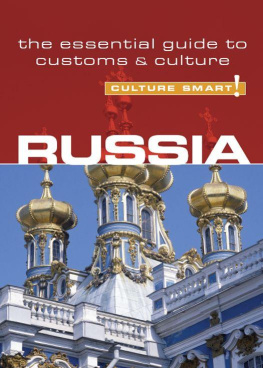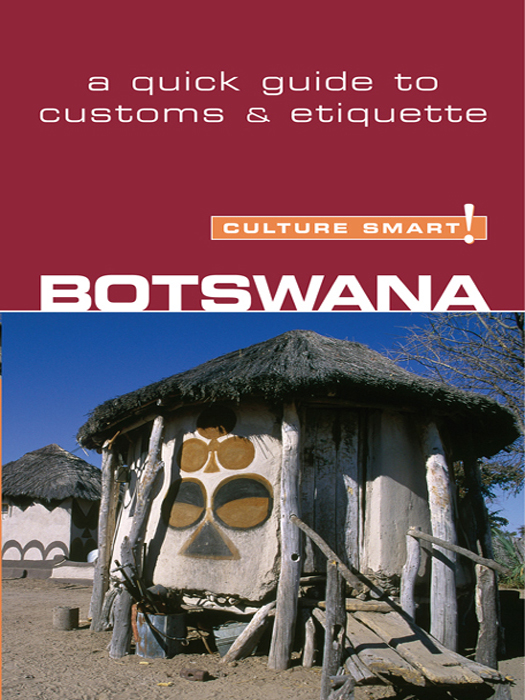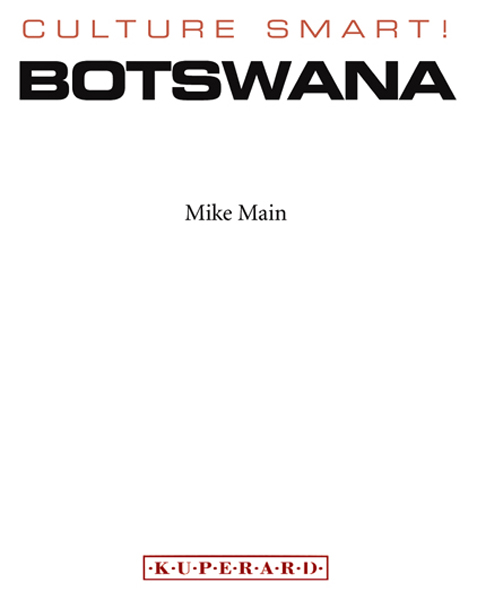All rights reserved. No part of this publication may be reprinted or reproduced, stored in a retrieval system, or transmitted in any form or by any means without prior permission in writing from the Publishers.
Cover image: Kalanga village, Magkadigkadi Pans. Travel Ink/William Gray
Images courtesy of Botswana Tourism
About the Author
MIKE MAIN is a businessman and management consultant specializing in leadership, team building, and presentation skills. Born in Devon, England, he has lived in West, East, Central, and Southern Africa for most of his life and is now, after twenty-five years there, a citizen of Botswana. In addition to his professional career, he is known as a photographer and a safari guide. He has also written a number of books on southern Africa and lectured extensively, both regionally and on cruise liners. He is a committee member of Transparency International and The Botswana Society, and Chairman of the Maru-a-Pula School Council and the Gaborone Music Society.
Other Books in the Series
- Culture Smart! Argentina
- Culture Smart! Australia
- Culture Smart! Austria
- Culture Smart! Belgium
- Culture Smart! Brazil
- Culture Smart! Britain
- Culture Smart! Chile
- Culture Smart! China
- Culture Smart! Costa Rica
- Culture Smart! Cuba
- Culture Smart! Czech Republic
- Culture Smart! Denmark
- Culture Smart! Egypt
- Culture Smart! Finland
- Culture Smart! France
- Culture Smart! Germany
- Culture Smart! Greece
- Culture Smart! Guatemala
- Culture Smart! Hong Kong
- Culture Smart! Hungary
- Culture Smart! India
- Culture Smart! Indonesia
- Culture Smart! Ireland
- Culture Smart! Israel
- Culture Smart! Italy
- Culture Smart! Japan
- Culture Smart! Korea
- Culture Smart! Mexico
- Culture Smart! Morocco
- Culture Smart! Netherlands
- Culture Smart! New Zealand
- Culture Smart! Norway
- Culture Smart! Panama
- Culture Smart! Peru
- Culture Smart! Philippines
- Culture Smart! Poland
- Culture Smart! Portugal
- Culture Smart! Russia
- Culture Smart! Singapore
- Culture Smart! South Africa
- Culture Smart! Spain
- Culture Smart! Sweden
- Culture Smart! Switzerland
- Culture Smart! Thailand
- Culture Smart! Turkey
- Culture Smart! Ukraine
- Culture Smart! USA
- Culture Smart! Vietnam
Other titles are in preparation. For more information, contact:
The publishers would like to thank CultureSmart!Consulting for its help in researching and developing the concept for this series.
CultureSmart!Consulting creates tailor-made seminars and consultancy programs to meet a wide range of corporate, public-sector, and individual needs. Whether delivering courses on multicultural team building in the U.S.A., preparing Chinese engineers for a posting in Europe, training call-center staff in India, or raising the awareness of police forces to the needs of diverse ethnic communities, we provide essential, practical, and powerful skills worldwide to an increasingly international workforce.
For details, visit www.culturesmartconsulting.com
contents
Map of Botswana
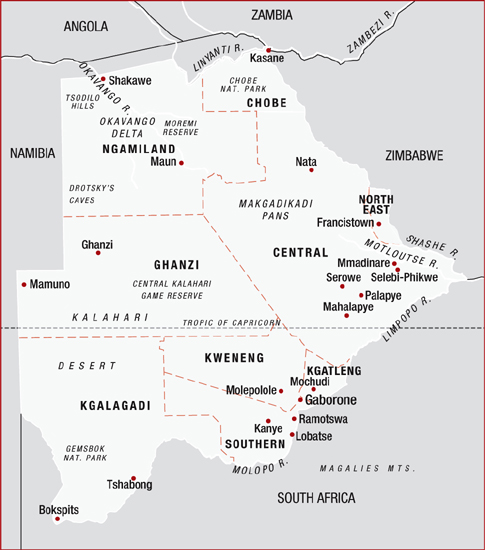
introduction
Landlocked Botswana is a country of contrasts. More than 80 percent is referred to as a desertthe Kalahari Desertyet it is not a desert at all. Despite the endless distances of thorn tree and scrub, the red sand of the Kalahari contains substantial woodland and other vegetation, and conceals boundless wealth in the form of coal, methane, copper, and diamonds: Botswana is the worlds biggest producer of gemstones.
There are no rivers, and no lakesyet there is the Okavango Delta, said to be the largest inland river delta in the world.
In a world where one measure of national wealth is the time for which a country can afford foreign imports out of reserves (usually two to three months), Botswanas time is measured in years. It is also true that the gap between rich and poor is growing ever wider, so the visitor will encounter obvious examples of both wealth and poverty: expensive cars and big houses, excellent roads and modern buildings, yet high unemployment and rural villages with dwellings built traditionally, of natural materials, without sanitation, electricity, or water.
Culturally, the people are overwhelmingly Bantu, but they are by no means a homogeneous group, except by classification in the broadest ethnic terms. In Botswana there are more than twenty tribes and twenty different, though sometimes related, languages. At independence in 1966, Botswana was one of the poorest countries in the world; it was also one of the most traditional and conservative. In the years since independence the country and its economy have made extraordinary strides, and Botswana is rightly seen as a model of democratic, planned development. But, for all that, traditional values lie close to the surface, often barely concealed beneath a veneer of modernity. This serves to explain the range of responses and behavior that a visitor might encounter. Many older people are intensely conservative in outlook, while the educated young seem indistinguishable from their peers around the world: enthusiastic, bright, innovative, and utterly modern. All are kindly, welcoming and, above all, forgiving.
Culture Smart! Botswana introduces you to the lives of the people. It looks at the history that has shaped society and shows the importance of traditional customs and values. It describes how Batswana live, work, and play, and how to avoid the pitfalls of cultural misunderstanding.
Key Facts
| Official Name | The Republic of Botswana | The country is Botswana, the language Setswana, the people Batswana, and an individual a Motswana. |
| Capital City | Gaborone |
| Major Towns | Francistown, Lobatse, Mahalapye, Palapye, Selebi-Phikwe, Ghanzi, Maun, Kasane |
| Population | 1.6 million |
| Area | 216,912 square miles (561,800 square km) |
| Terrain | Generally flat. Dry desert plateau of woodlands, thorn scub, and grasslands |


